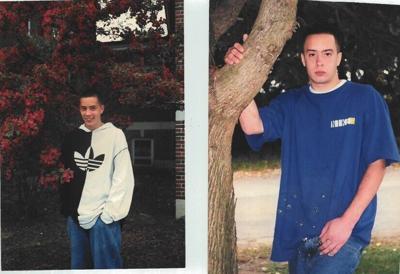As a civil lawsuit concerning abuse said to have been suffered by a former resident of New Hampshire’s youth detention center progresses, David Meehan’s life story unfolds.
It’s a story of epic failure, despicable tragedy, a New Hampshire disgrace.
It’s also the first of many stories that will be told about the nightmarish conditions plaintiffs say they endured while housed at the facility that is now the Sununu Youth Services Center in Manchester, New Hampshire.
More than 1,200 survivors have come forward since Meehan bravely did so in 2020, saying that they, too, were emotionally, physically and sexually abused while under the state’s care.
Meehan, who is now in his 40s, was a resident of YDC in the mid-1990s beginning when he was 14. Born to teenage parents with substance use issues, he became a runaway and was picked up for things like petty theft, leading him to the youth home.
Once there, he said he suffered escalating abuse by an increasing number of staff members, including being raped, severely beaten, and locked in solitary confinement.
He contracted gonorrhea, but a nurse never asked him how he got the disease, he said. He described a confusing relationship with his counselor, who told him he loved him, yet repeatedly raped him — once at gunpoint. And he recalled “an extremely dark period” when he was beaten and raped almost daily and confined to his room for more than 50 days.
“Eventually, David was reduced to the status of a child sex slave and a punching bag at YDC under the ‘care’ of the New Hampshire Health and Human Services,” Meehan’s attorney David Vicinanzo said in his opening statements April 10 in Rockingham County Superior Court in Brentwood.
By his own definition, Meehan is a broken man. He suffers from complex post-traumatic stress disorder and its consequences: anxiety, depression, rage, addiction, nightmares, flashbacks, and difficulty with relationships and keeping a job.
“They took away my opportunity to live,” Meehan said. “I was trapped in this survival mode where I hide from everybody all the time.”
With millions of dollars on the line, attorneys defending the Department of Health and Human Services are doing their best to invalidate Meehan’s experience, mainly by shifting responsibility from the state and to the individual perpetrators (11 former workers have been arrested and are facing criminal charges, including ones accused of abusing Meehan).
Attorneys for the state are also trying to cast doubt on Meehan’s memories, assigning him with a bipolar disorder diagnosis so as to imply he’s delusional rather than suffering from PTSD.
They’ve also pointed to the time period that elapsed before Meehan came forward, and the discrepancies between his testimony and YDC documentation — documentation created by the very people accused of abusing and neglecting him.
“The fish rots from the head,” Vicinanzo said concerning the state’s responsibility.
Last year, the state tried to dismiss all 1,200-plus survivors’ lawsuits, but in August Rockingham Superior Court Judge Andrew Schulman denied the motion, a move lauded by Vicinanzo and fellow attorney Rus Rilee.
“While claiming to care about child abuse victims, Attorney General (John) Formella, with the help of his outside lawyers at Verrill Dana, has been quietly trying to summarily dismiss every single victim’s case without giving them a chance to prove their claims in court,” they said, describing the scandal as the worst in New Hampshire history.
“That effort has failed,” they continued. “Our clients now have the right to have their claims for damages heard in court in front of a jury.”
With Meehan’s case the process, which is expected to take a decade to play out, has begun. The “crimes” these children committed that led them to YDC mostly involved coming from dysfunctional, abusive homes, using drugs, running away, stealing food, and having undiagnosed mental illness. The state was supposed to help them become thriving adults. Instead they were further traumatized.
New Hampshire is offering a settlement fund, but many victims — victims like Meehan — promise to bypass them and instead go to court.
And why wouldn’t they? After all, they’ve waited the better part of a lifetime to be heard.















